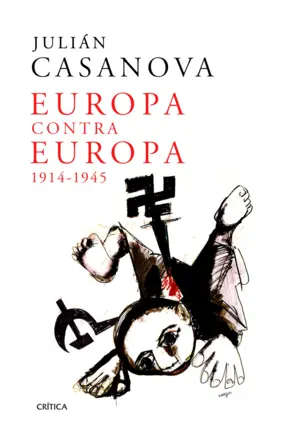Europe against Europe
Publishing date:18 october 2012
Synopsis:
The First World War, which decided the destiny of Europe by force of arms after decades of politics and diplomacy, is considered by many historians to be the watershed of European history in the 20thCentury, a traumatic break with the dominant politics of the time.
Communism and fascism, which arose out of this war, became first alternatives and then polarizing magnets for intellectuals, vehicles for the politics of the masses, and nurseries for leaders who came from nowhere to rip out the old monarchical and imperial order by its roots, causing radical ruptures with the past.
The destruction and millions of deaths that the First World War caused, the changes in borders, impact of the Russian Revolution and problems millions of ex-soldiers had with adapting to civilian life, especially in defeated countries, were at the heart of the violence and confrontational culture which became endemic in many societies during that turbulent period.
This book examines these factors in detail, combining narrative and analysis of the Russian revolution and the rise of fascism, democratic decline and authoritarian advances, the culture of confrontation and the consequences all these factors had for a continent which ended 1945 broken into a thousand pieces.
Technical Data
| Technical data | Publish date: 18 october 2012 ISBN: 978-84-9892-431-2 Pages: 272 Imprint: Editorial Crítica |
|---|---|
| Reviews | "Julián Casanova has written a brilliant political and ideological synthesis of the processes which caused the European crisis of the 20thCentury as well as its repercussions for smaller countries... This is highly recommended reading" Ángel Viñas "There are few historians – Spanish or European – who are able to capture the immense complexity of the period and to do so in an accessible way. Julian Casanova, who has already written a series of books which have combined profound analysis with an attractive, lively style, is one of them. This magnificent book resounds with wisdom and literary excellence. It is an achievement of which any international historian would be very proud" Paul Preston |



